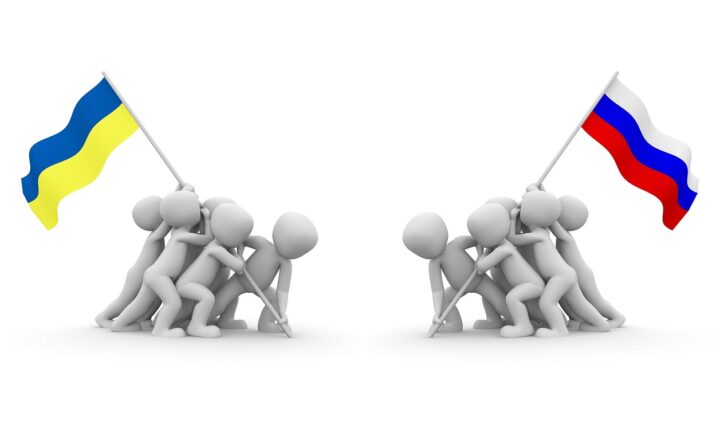Beyond the Pages: Literature That Shaped History and Society
November 18, 2024

Literature has long served as a mirror reflecting the beliefs, struggles, and passions of humanity. From ancient epics to modern novels, the written word has shaped our understanding of ourselves and the world around us. This article explores key literary works that have profoundly influenced history and society, demonstrating their power to spark revolutions, challenge norms, and inspire generations.
1. The Epic of Gilgamesh: The Quest for Immortality
Written in ancient Mesopotamia, “The Epic of Gilgamesh” is one of the earliest known works of literature, dating back to around 2100 BC. This epic poem tells the story of Gilgamesh, a king who embarks on a quest for immortality after the death of his friend Enkidu. The themes of friendship, the fear of death, and the search for meaning resonate deeply with readers even today.
The enduring legacy of this text lies in its exploration of universal human concerns. Gilgamesh’s journey ultimately teaches that true immortality can be found in the impact one leaves behind, encouraging readers to reflect on their own lives and legacies.
2. The Republic by Plato: Foundations of Western Philosophy
Plato’s “The Republic,” written around 380 BC, remains one of the foundational texts of Western philosophy and political theory. In this dialogue, Plato explores justice, the ideal state, and the role of the philosopher-king. His allegory of the cave is particularly famous, highlighting the difference between the world of appearances and the world of forms—the ultimate reality.
The philosophical ideas presented in “The Republic” have influenced political thought from ancient Rome to the present day. Concepts of democracy, governance, and the moral responsibilities of leaders can trace their roots back to Plato’s visionary writing.
3. The Divine Comedy: A Journey Through the Afterlife
Dante Alighieri’s “The Divine Comedy,” composed in the early 14th century, is a monumental poem that explores themes of sin, redemption, and the nature of God. Split into three parts—Inferno, Purgatorio, and Paradiso—it chronicles Dante’s journey through the realms of the afterlife.
This work not only provides profound insights into medieval spirituality and theology but also reflects the societal values and political landscapes of Dante’s time. The vivid imagery of the circles of Hell and the concept of divine justice have resonated across centuries, influencing literature, art, and religious thought.
4. The Bible: The Cultural and Moral Compass
The Bible is arguably the most influential literary work in Western civilization. Comprising various texts written over centuries, it has shaped moral principles, laws, and cultural practices. The narratives within the Bible—ranging from the creation story to the teachings of Jesus—have provided ethical frameworks and spiritual guidance to billions.
Beyond its religious significance, the Bible has also influenced art, literature, and politics. Its quotes and themes permeate Western literature and culture, giving voice to social justice movements and underpinning the very foundations of moral conduct in society.
5. 1984 by George Orwell: A Warning Against Totalitarianism
George Orwell’s dystopian novel “1984,” published in 1949, presents a chilling portrayal of life under a totalitarian regime. The story follows Winston Smith, a man living in a society stripped of privacy, individuality, and truth. Orwell’s work serves as a warning against oppressive governments and the manipulation of truth through propaganda.
With its striking themes of surveillance, censorship, and the loss of personal freedom, “1984” continues to be relevant in today’s digital age, reminding readers of the importance of vigilance in preserving democracy and individual rights.
6. The Feminine Mystique: Catalyst for Feminism
Betty Friedan’s groundbreaking book “The Feminine Mystique,” published in 1963, played a pivotal role in igniting the second wave of feminism in the United States. Challenging the traditional roles assigned to women, Friedan’s work articulated the dissatisfaction experienced by many housewives and highlighted the need for gender equality.
Friedan’s exploration of women’s identity and purpose beyond domesticity not only inspired countless women to seek education and careers but also reshaped societal norms. The feminist movements that followed her publication owe much of their momentum to the ideas presented in this influential work.
7. To Kill a Mockingbird: A Lesson in Humanity and Justice
Harper Lee’s “To Kill a Mockingbird,” published in 1960, addresses themes of racial injustice and moral growth through the eyes of a young girl, Scout Finch. Set in the racially charged atmosphere of the American South, the novel explores the complexities of human behavior and the pervasive effects of prejudice.
Lee’s powerful storytelling encourages readers to confront their own biases and pressures society to reflect on issues of equality and justice. The characters and events in the story serve as a reminder of the importance of compassion and understanding in overcoming societal challenges.
8. Their Eyes Were Watching God: The Search for Self-Identity
Zora Neale Hurston’s novel “Their Eyes Were Watching God,” published in 1937, is celebrated for its rich portrayal of African American female identity. The narrative follows Janie Crawford’s journey to find her voice and independence within the constraints of societal expectations.
Hurston’s work not only captures the complexities of race and gender but also emphasizes the importance of self-discovery and empowerment. It paved the way for future generations of writers and activists advocating for marginalized voices in literature and society.
Conclusion
Literature is a powerful tool for communication, understanding, and change. The works discussed above illustrate how stories can transcend time and space, shaping the very fabric of society and providing reflections on human nature. Through their themes and characters, they have challenged societal norms, invoked thought, and inspired countless individuals to envision a better world.
As we immerse ourselves in literary works, we not only uncover the past but also gain insights into contemporary issues. Literature continues to shape the way we think and act, reminding us that words have the power to change the world.








